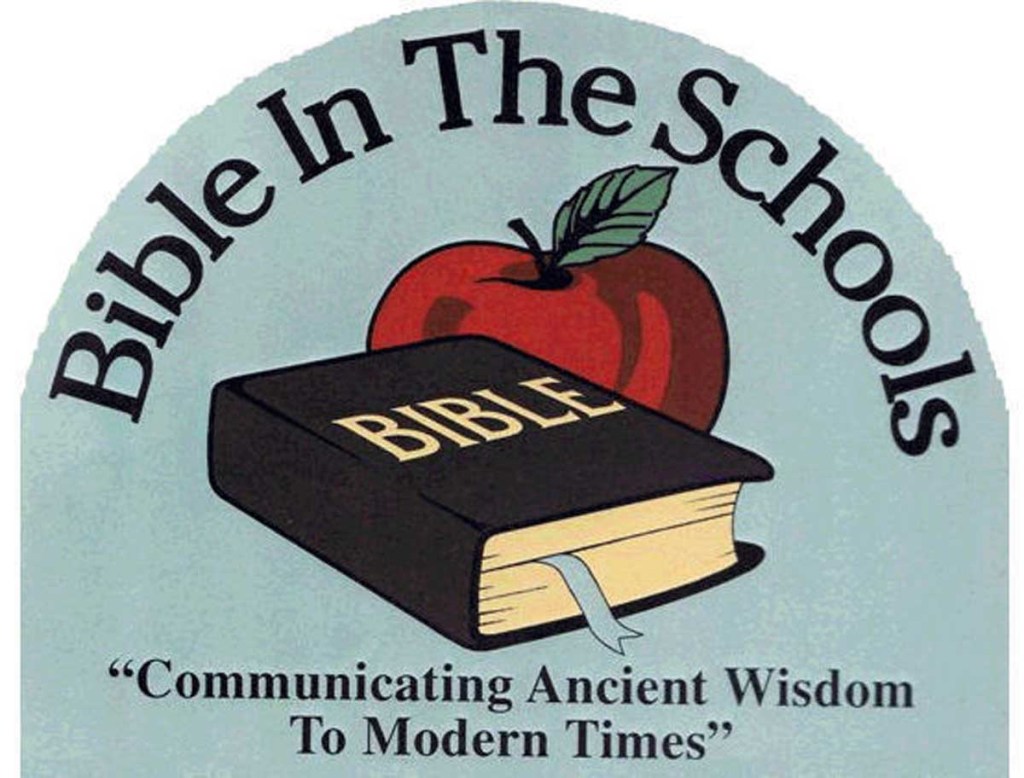Judge dismisses suit challenging West Virginia Bible class
Published 11:00 am Wednesday, November 15, 2017

- Bible in the Schools logo
BLUEFIELD, W. Va. — A federal judge has dismissed a widely watched lawsuit challenging the legality of a weekly Bible course in public elementary and middle schools in Mercer County, West Virginia, on the grounds the class is no longer being taught.
But U.S. District Judge David A. Faber said if the course is revised and again becomes a part of the classroom curriculum, the court can issue an injunction preventing implementation should it run afoul of the First Amendment’s ban on laws establishing religion.
Trending
The judge noted the county school district, a defendant in the case, stated an intention to reinstate a modified Bible program even as it discontinued the course objected to by the plaintiffs — two county residents and the Freedom From Religion Foundation.
The lawsuit contended the Bible course violated the establishment clause of the First Amendment by entangling public schools in religious affairs, violating “the personal consciences of nonreligious and non-Christian parents and students.”
The Mercer County Board of Education and the First Liberty Institute, a Texas-based nonprofit law firm specializing in religious freedom cases, argued the class did not promote religious beliefs, exploring only the history and literature of the Bible. They also noted it was an elective, not a mandatory, course.
The Bible course had been taught in the county’s public schools since 1986. It was discontinued in April, three months after the lawsuit contesting its legality was filed.
Judge Farber ruled that, in effect, the suit had become pointless since the course had been voluntarily eliminated by school officials. He made no ruling on whether the course was constitutional or not.
But, significantly, he said there is no absolute ban on public schools teaching Bible classes – so long as they comply with standards set by federal court rulings on similar cases and do not promote a particular religion.
“A public school Bible class does not establish an automatic violation of the (First Amendment’s) Establishment Clause,” said the judge.
That part of the decision provided encouragement to school officials.
“We have currently suspended the program and are reevaluating the curriculum” in view of the judge’s ruling, said Dr. Deborah Akers, superintendent of the Mercer County Schools. “We want to make sure any programs implanted, henceforth, will meet all guidelines.”
The First Liberty Institute, which provided the school board with legal counsel, said the federal court “rightly rejected the notion that teaching students about the Bible is always unconstitutional.”
The Freedom From Religion Foundation, which represented the parents who objected to the Bible class, maintained Bible classes are “blatantly unconstitutional” in public schools.
It said that even when the course is elective, the students who don’t participate are subject to bullying and harassment by their classmates and others. Nearly all of the 16,000 elementary and middle school students in the school district participated in the Bible class.
Elizabeth Deal was one of the two parent plaintiffs in the case. She kept her elementary school daughter out of the Bible class and later transferred her to a nearby school district in Virginia to avoid bullying. She had said that classmates told her daughter she was going to hell.
The other parent in the case remained anonymous, listed only as “Jane Doe” and her child “Jamie Doe.”
The lawsuit attracted national attention in January when it was filed because of the larger ramifications of the case, although few public schools elsewhere offer Bible or other courses about religion on class time.
Mercer County, however, reflects much of the conservative Christian values that have generated political and cultural conflict across the United States.
The Bible course was funded by parents and community organizations that raised some $500,000 annually to pay for the class, including hiring teachers the school district considered qualified to teach about the Bible.
Mercer County, with a population of 62,000 in southern West Virginia, is home to more than 100 churches, most of them Baptist, Methodist or Pentecostal. Radio stations in the area feature gospel and Bible talk shows and play Christian music. Billboards often feature religious themes.
Details for this story were provided by the Bluefield, West Virginia, Daily Telegraph.


